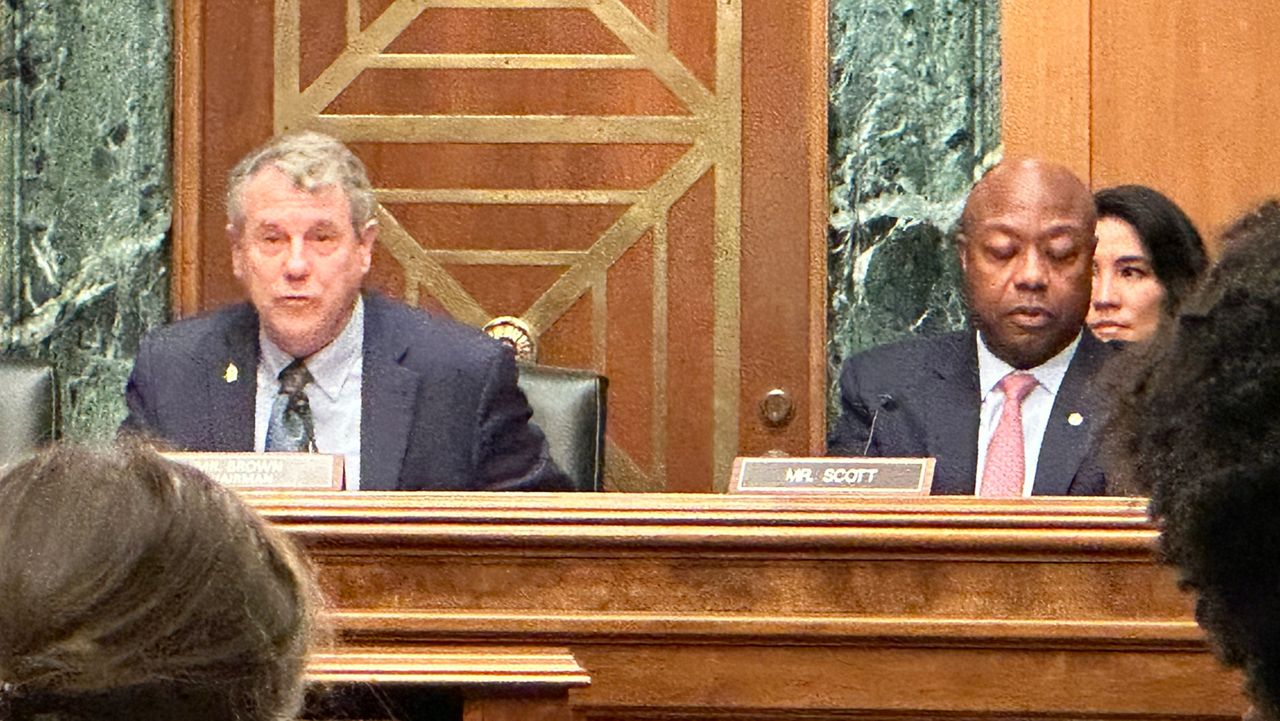WASHINGTON, D.C. — An international auto race is underway — not Formula 1 — but for dominance in electric vehicle (EV) production.
What You Need To Know
- As China is aggressively supporting EV production, lawmakers in the U.S. are debating whether to encourage EV production at all.
- The EX30 is made in China by Volvo Cars, a Swedish brand owned by Chinese automaker Geely
- Amid the international EV race, U.S. lawmakers remain divided over whether the government should be encouraging EV production at all
- Facing a tough election in the fall, Democratic Sen. Brown voted against most of his party last week to support a bill blocking the EPA’s new rule
China’s EV evolution is on display in Beijing this week at the nation’s largest auto show, where dozens of automakers are premiering 71 new EVs for the next year.
One of those EVs will arrive in U.S. car dealerships this summer, with the power and efficiency similar to Tesla’s best-selling Model Y, but for about $8,000 less.
The EX30 is made in China by Volvo Cars, a Swedish brand owned by Chinese automaker Geely.
The vehicle comes in at a lower cost partially because China offers heavy subsidies for EV development. U.S. companies have said that creates an unfair advantage against which they can’t compete.
“The potential introduction of Chinese electric vehicles and for that matter, internal combustion engine cars, into the U.S. market is a potential extinction level event for auto jobs in the United States,” said Scott Paul, president of the Alliance for American Manufacturing (AAM).
Paul pointed to the decline of the U.S. Steel industry starting in the late 1990s after subsidized Chinese steel flooded the American market at cheaper prices.
“It wiped out not only our steel industry but other industries in other industrialized democracies as well,” Paul said. “Now we’re seeing the same possible thing for the auto sector.”
AAM is calling for immediate action to protect U.S. automakers, such as a total ban on Chinese EV imports, as proposed by Sen. Sherrod Brown, D-Ohio.
Other lawmakers have called to end loopholes for Chinese-made EVs to skirt tariffs and qualify for EV tax credits. The EX30, for example, is able to avoid the 27.5 percent tariff on Chinese EVs because Volvo also has U.S. manufacturing operations, according to reporting by Reuters. The car could end up even cheaper for buyers if they receive a $7,500 EV tax credit.
Amid the international EV race, U.S. lawmakers remain divided over whether the government should be encouraging EV production at all.
In March, the EPA finalized an emission standards rule that would in effect require two-thirds of new vehicles to be electric or hybrid by 2032.
At a House Transportation and Infrastructure Committee hearing on April 30, Republicans pushed back the new rule that they decried as a de facto ban on gas-powered cars.
“I believe in consumer choice. The choice to decide where you want to go and how you want to get there. Sadly, the Biden Administration doesn’t seem to share this view,” said Rep. Rick Crawford, R-Ark., chair of the Highways and Transit Subcommittee.
Facing a tough election in the fall, Democratic Sen. Brown voted against most of his party last week to support a bill blocking the EPA’s new rule.
“I don’t care what car people drive. My mission is to make sure, ultimately, that Ohioans and Ohio union workers and non-union workers, too, are making these vehicles,” Brown said.
Meanwhile, companies including Ford and Toyota have delayed new EV production as EV sales slowed in recent months.
A spokesman for Bernie Moreno, Brown’s Republican opponent in the Senate race in Ohio, said Moreno “supports President Trump’s America First trade policies and was supportive of his tariffs on our adversaries including China.”










